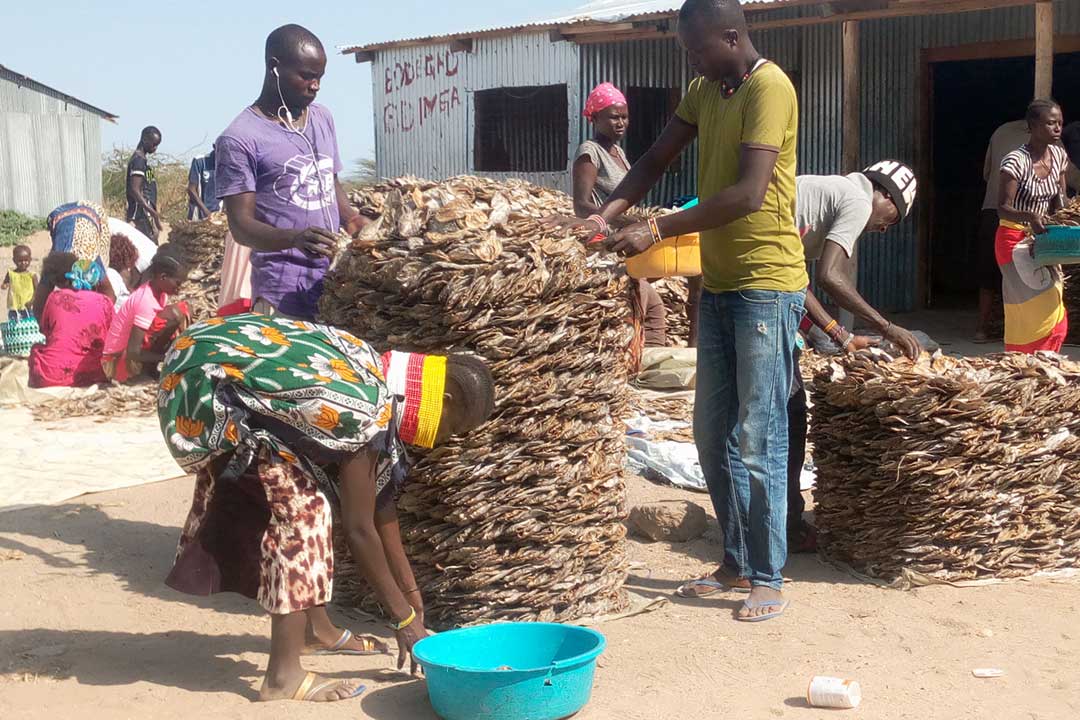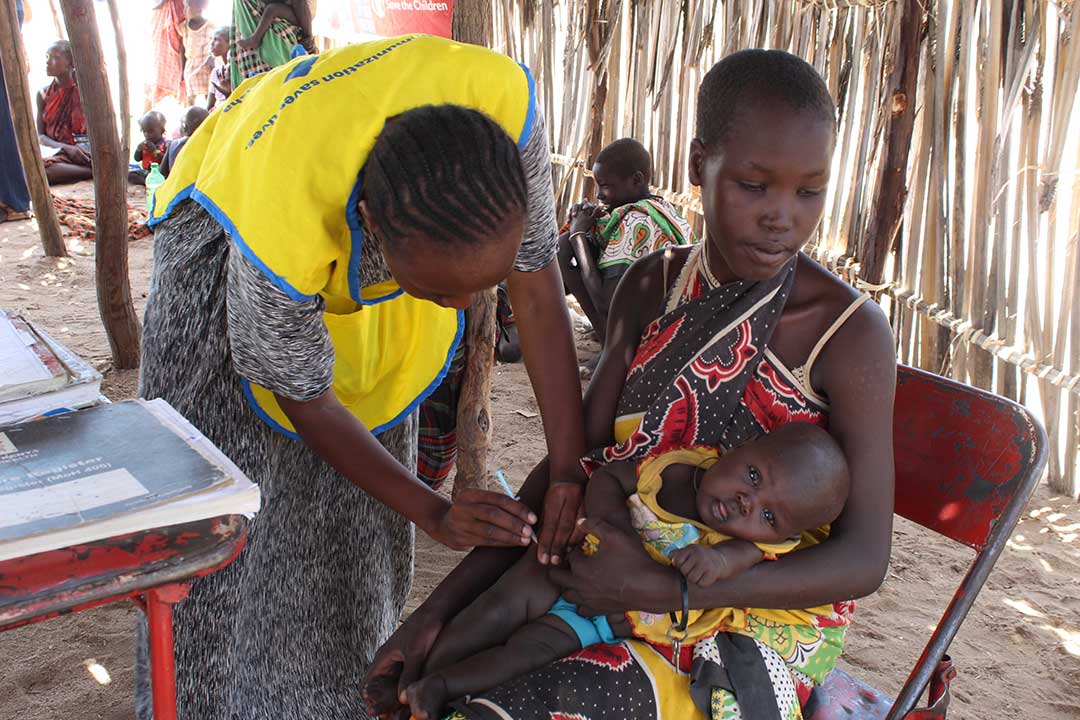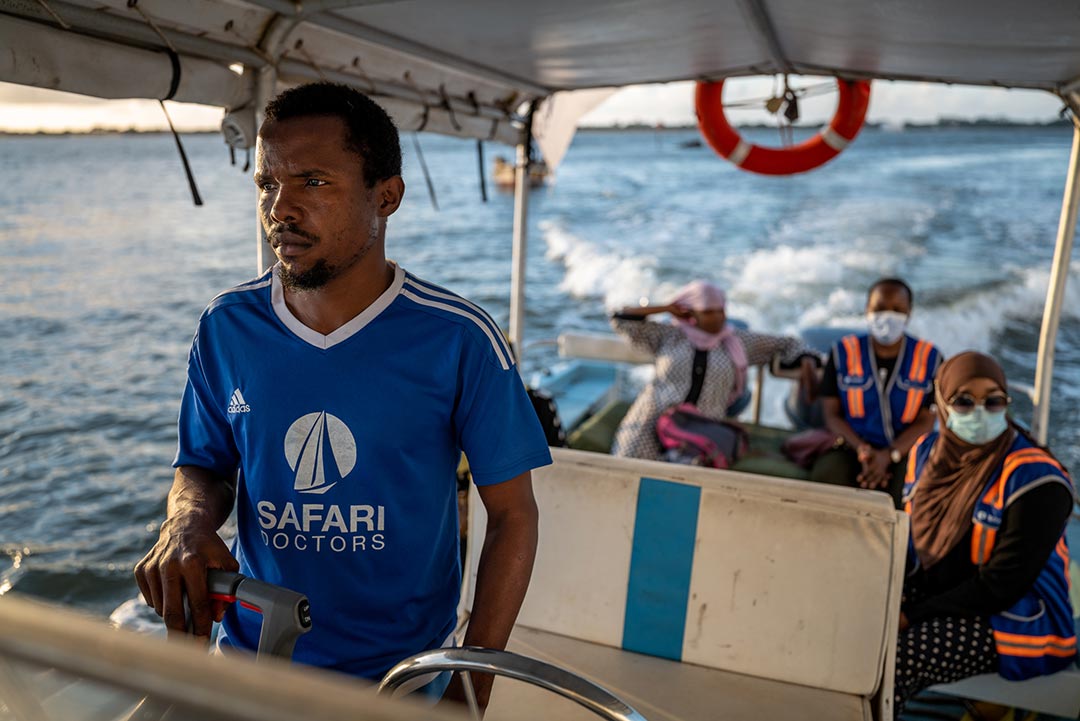Kenya’s digital vaccine warriors
The Savannah Innovation Hub teaches young women in Garissa County to counteract COVID-19 vaccine misinformation from groups like Al-Shabaab.
- 30 July 2021
- 4 min read
- by Abjata Khalif
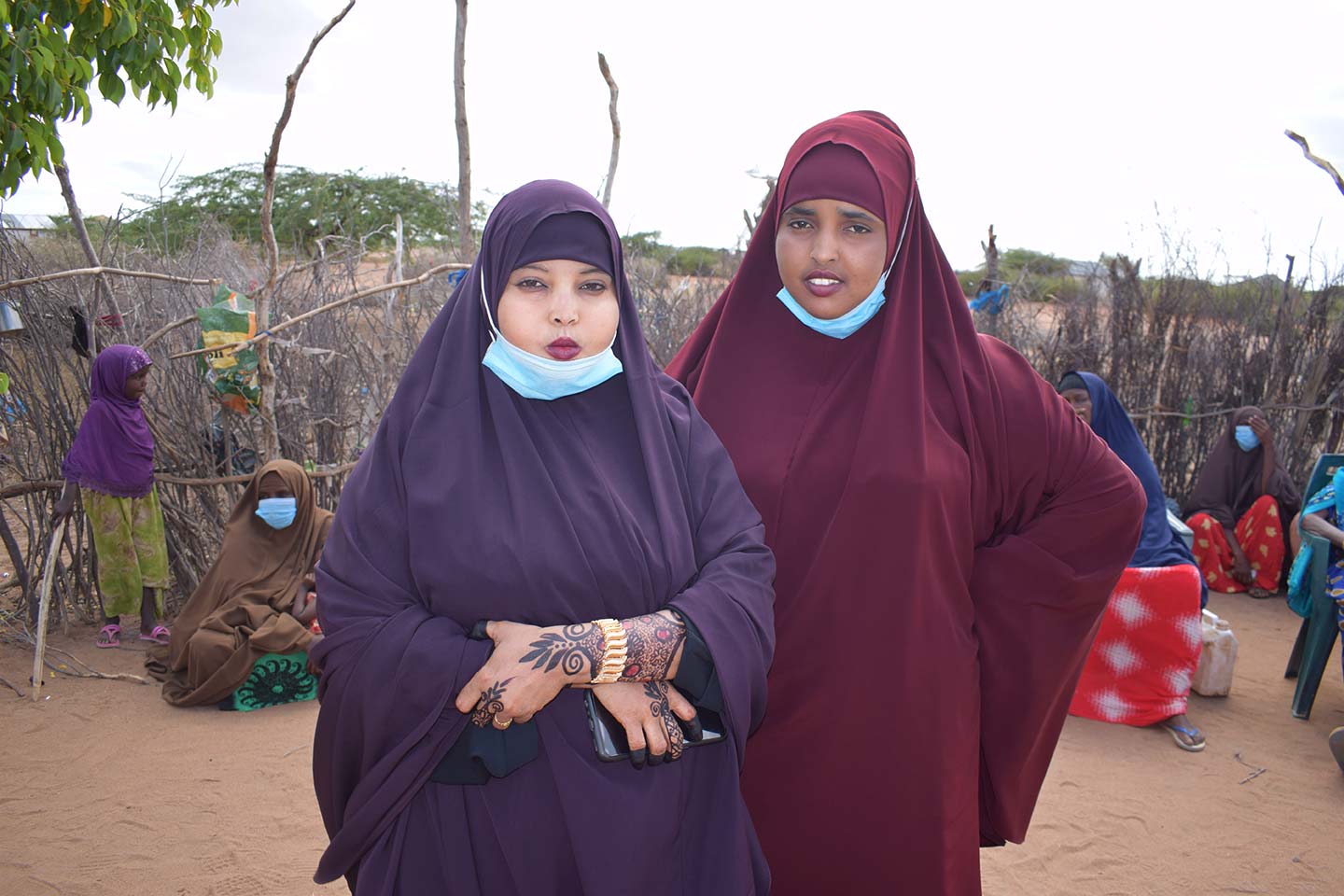
Walking under the searing heat, Khadija Maalim, a popular social media influencer, is joined by community members in Atheley village, Garissa county, as she looks for a good location to shoot a TikTok video. While they walk, she offers useful information and tips on COVID-19 containment to the villagers.
Despite security risks and weather challenges, she decides to shoot her video near a traditional Somali hut. The villagers, the majority of whom are women, throng around the video shoot site to both listen to her message and to learn about this new way of disseminating information, using social media to reach larger groups of people.
The influencer is one of a growing army of young women trained to use social media to educate communities, with a particular focus on reaching out to young girls and women suffering from information poverty.
Maalim, who records in the Somali language, shows the women her other TikTok videos which offered education and information to Somali communities. “My past TikTok videos generated comments and interest from locals and the Somali diaspora community,” says Maalim in Atheley. “They got a lot of information on COVID-19 vaccines, including being able to ask questions to a medical doctor based in Garissa. It’s a win-win.”
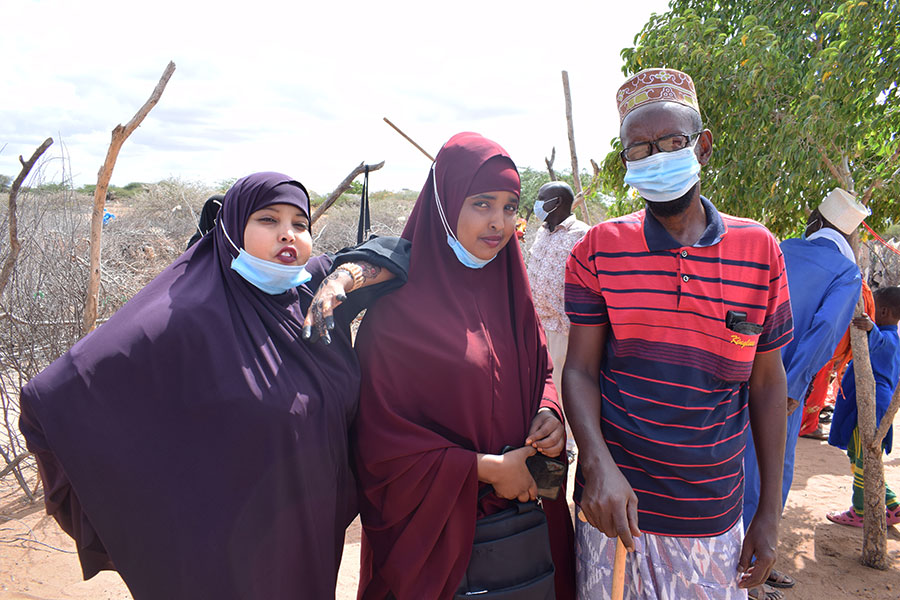
For her new video, she is addressing misleading claims that the COVID-19 vaccine affects girls’ menstrual cycles and causes other serious ailments. She highlights the experiences of a number of young female essential workers who got AstraZeneca jabs, distributed in Kenya through the COVAX Facility.
“My new video is centred on three young Somali female frontline workers, one of whom is pregnant, who got the jab and did not experienced any menstrual problems,” Maalimx says. “This video message is meant for local, urban, national and international Somali young women.”
The influencer is one of a growing army of young women trained to use social media to educate communities, with a particular focus on reaching out to young girls and women suffering from information poverty.
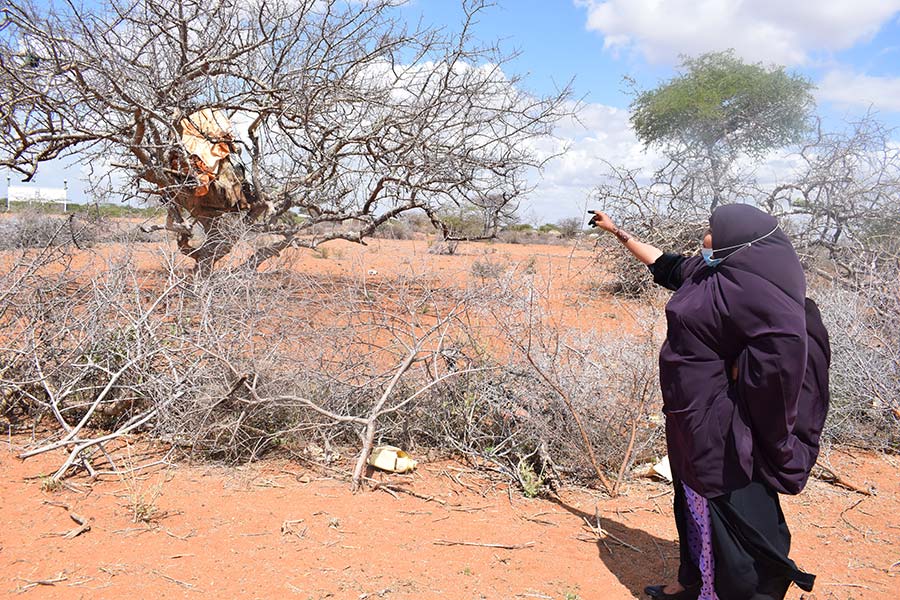
Savannah Innovation Hub, based in Garissa town, is a digital sanctuary offering training opportunities to more than hundred young women, including detecting misinformation. Dekha Hassan, a Programme Coordinator at Savannah, says, “We started Innovation Hub about a year before the emergence of COVID-19. The original plan was to train young women on STEM and coding. But the increased COVID-19 misinformation campaigns that targeted young women made us divert our attention. Now, our work focuses on educating young women, promoting vaccine acceptance and empowering digital female warriors to shoot down misinformation and report the social media accounts to tech companies.”
Have you read?
“Our door is open to all young women who want to use digital tools to create social change, regardless of literacy level or academic background,” she continues. “We have trained 150 young women and plan to enrol another 300 to be able to tackle COVID-19 misinformation.”
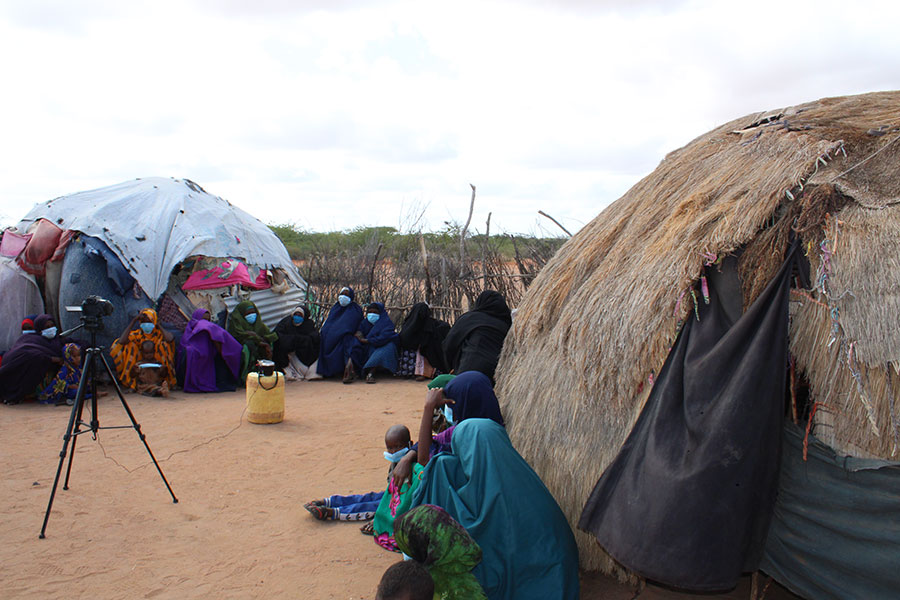
According to Amina Abdi, a social media influencer and a graduate of Savannah, there are various ‘bad actors’ using social media to reach vulnerable and semi-literate youth in the Northern Kenya region with misleading information on the COVID-19 vaccine.
Amina, who is popular on Facebook and Snapchat, is part of a ten-person digital factcheck team. “Our work involves going through the various platforms, like Facebook, WhatsApp and Twitter, to check for misinformation, fake medical information, etc,” she explains. “On average, our group brings down 10 to 15 misleading posts per day; the big tech companies are very cooperative. The local security companies also use their sophisticated skills to find account owners. The majority of them are linked to neighbouring Somalia where Al-Shabaab militant groups are active.”
Kiiney Jehow, who is part of the factchecker team, adds: “We have tapped into a network of active social media users in Northern Kenya and provide real time information on misleading social media information, accounts used and actions taken. We use the same platforms to bring expert advice. We reach at least 450,000 people in the community and the diaspora.”
Part of their training involves coding, which has led to the design of various digital solutions (still in the development phase) to address general health crises and emergencies, such as a mobile application in Somali to link communities in both urban and remote areas of Northern Kenya to medical services
For regional human rights organisation, Wagalla Centre for Peace and Human Rights, the work that has already been done is making a difference. “According to our investigations, accounts used to disseminate misleading COVID-19 vaccine information come from Somalia-based groups and the intention is to use young women to promote mass vaccine hesitancy and rejection, thereby continuing to destabilise the region,” Wagalla Executive Director Mr Adan Garad says. “We are glad for the Savannah Innovation Hub initiative. The way they use video, in the Somali language, to educate other underprivileged and illiterate girls and women is fascinating.”
